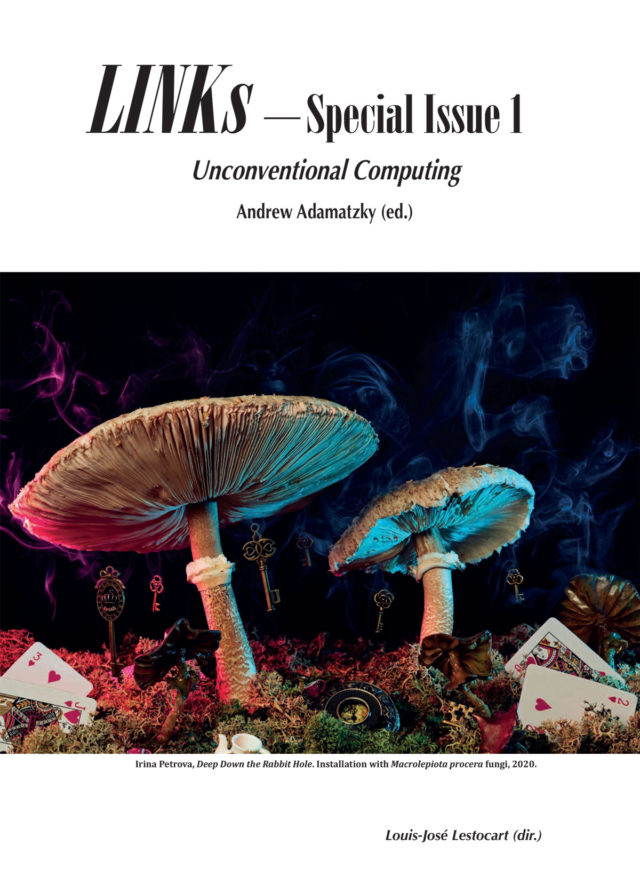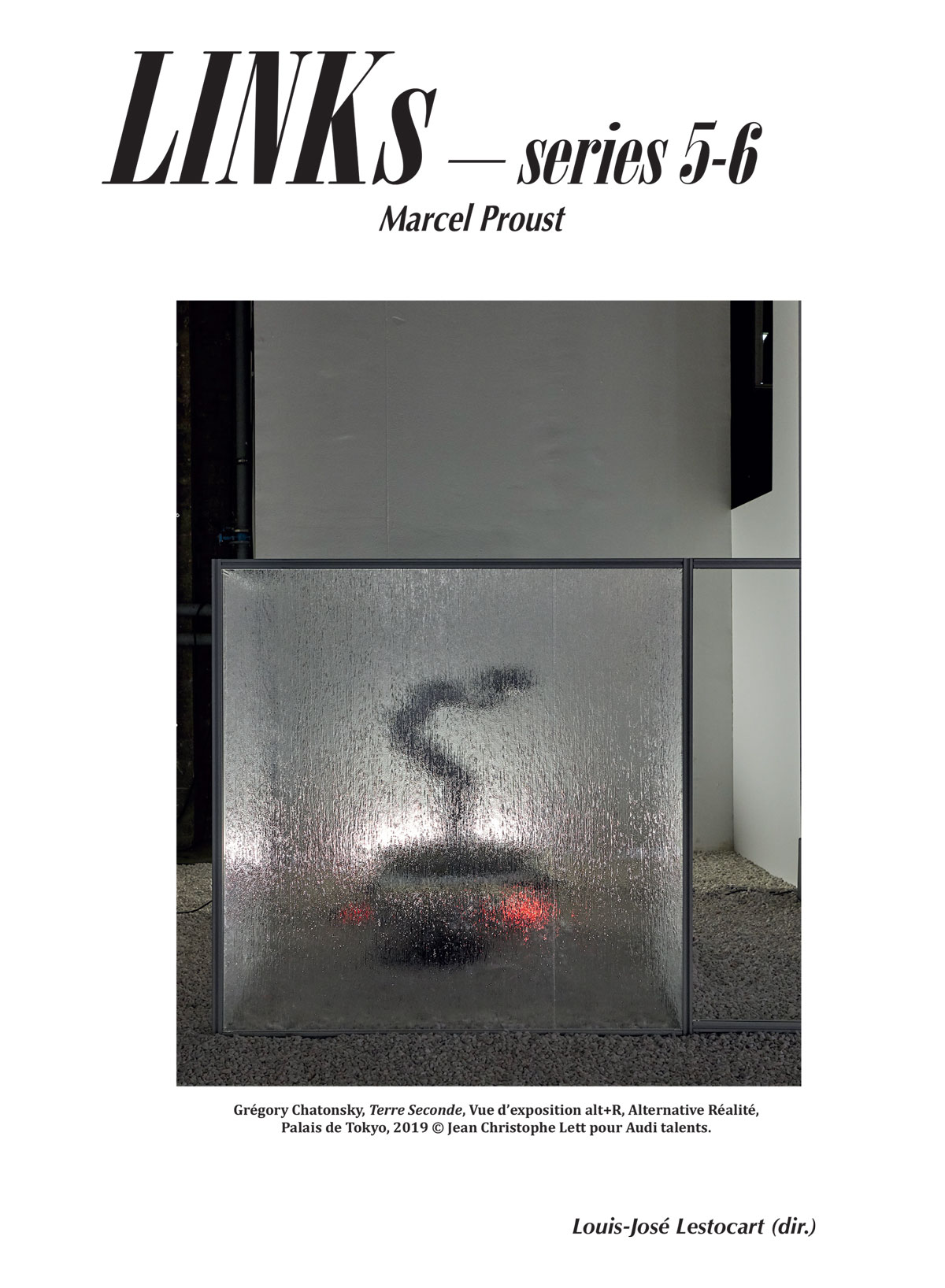LINKs-series Special Edition 1 | Unconventional Computing
 There is no strict definition of unconventional computing. Being an unconventional computist is not a matter of training but thinking and living. Phenomenologically most works on unconventional computing are about implementation of computing in novel substrates (chemical, physical, biological), development of computing schemes and algorithms not fitting into the mainstream framework, or designing of computing architectures inspired by chemical or biological systems. This special issue of LINKs gives a snapshot of the unconventional computing field. Articles presented are punchy and well illustrated.
There is no strict definition of unconventional computing. Being an unconventional computist is not a matter of training but thinking and living. Phenomenologically most works on unconventional computing are about implementation of computing in novel substrates (chemical, physical, biological), development of computing schemes and algorithms not fitting into the mainstream framework, or designing of computing architectures inspired by chemical or biological systems. This special issue of LINKs gives a snapshot of the unconventional computing field. Articles presented are punchy and well illustrated.
I don’t feel there is a need to introduce each article because they all are short and self-contained and as well can be seen as extended abstracts or essays of the authors research profiles. All articles of the issue are authored by the world-leading experts in the field. The issue will serve well as a light-touch introduction to unconventional computing for people not familiar with computing and might inspire artists and humanitarians to enter the field.
Andrew Adamatzky, Bristol
January 2021
LINKs-series Édition Spéciale 1 | Informatique Non Conventionnelle
Il n’existe pas de définition stricte de l’Unconventional computing (ou informatique non conventionnelle). Pratiquer l’informatique non conventionnelle n’est pas une question de formation mais de réflexion et de vie. Phénoménologiquement, la plupart des travaux sur l’informatique non conventionnelle portent sur la mise en œuvre du calcul dans de nouveaux substrats (chimiques, physiques, biologiques), le développement de schémas et d’algorithmes de calcul ne s’inscrivant pas dans le cadre traditionnel, ou la conception d’architectures informatiques inspirées de systèmes chimiques ou biologiques. Ce numéro spécial de LINKs donne un aperçu du domaine de l’informatique non conventionnelle. Les articles présentés sont percutants et bien illustrés.
Je ne pense pas qu’il soit nécessaire de présenter chaque article car ils sont tous courts et autonomes et peuvent également être considérés comme de longs résumés permettant de saisir le profil de recherche des différents auteurs. Tous les articles du numéro sont rédigés par les plus grands experts mondiaux dans le domaine. Le numéro pourra servir d’introduction par petites touches à l’informatique non conventionnelle aux personnes qui ne sont pas familiarisées avec l’informatique, et peut-être inspirer des artistes et même des humanitaires à entrer dans le domaine.
Andrew Adamatzky, Bristol
January 2021

LINKs-series Special Edition 1 | Unconventional Computing
- Andrew Adamatzky

Préface - Selim G. Akl

Computational Nonuniversality: Philosophical and Artistic Perspectives - Bruce MacLennan

Swarms of microscopic agents self-assemble into complex bodies - Bernd Ulmann

Exploring chaos with analog computers - Olga Kosheleva and Vladik Kreinovich

Are There Traces of Megacomputing in Our Universe - Dawid Przyczyna, Marcin Strzelecki, Konrad Szaciłowski

Communication, information and music - Zoran Konkoli

Unconventional sensing: doing it unusual way in unusual settings - Mark Burgin

Induction versus Deduction in Science, Computing, Literature and Art - Andrew Adamatzky and Irina Petrova

Fungal Grey Matter - Alessandro Chiolerio

Le vignoble cosmique - Kenichi Morita

Novel reversible logic elements for unconventional computing - Nancy Salay

An Unconventional Look at AI: Why Today’s Machine Learning Systems are not Intelligent - Jordi Vallverdú

The benefits of being wrong: bonding epistemic and cognitive incompleteness for natural and artificial intelligent systems - Richard Mayne

Collapsing the wave function on postquantum unconventional computing - Pier Luigi Gentili

How to face the Complexity of the 21st Century Challenges? The contribution of Natural Computing - Dan V. Nicolau, Jr.

The Quantum Computing Delusion - Genaro J. Martínez, Andrew Adamatzky, Marcin J. Schroeder

The art of unconventional computing with cellular automata - Andrew Adamatzky, Anna Nikolaidou, Antoni Gandia, and Alessandro Chiolerio

Living wearables from slime mould and fungi - Stefan Höltgen

Brain Lego. Toy Computing with Lego Bricks - Catarina Pombo Nabais

Intelligent technological tattoos. Science, Art and Technology on and under the skin






